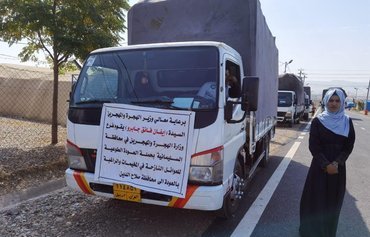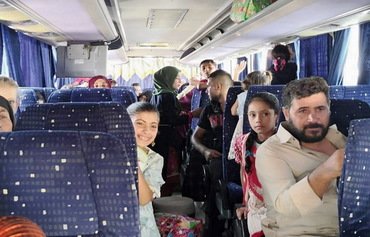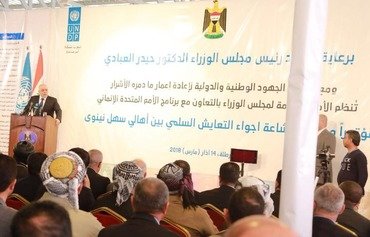The restoration of social peace is a strategic goal for Anbar province in the post "Islamic State of Iraq and Syria" (ISIS) era.
To this end, joint committees comprising public officials, tribal leaders and civilian activists are implementing an integrated reconciliation project to foster peace in the province and resolve conflicts instigated by ISIS, local officials told Diyaruna.
The project is based on the Covenant of the People of Anbar, endorsed by Anbar province leaders and dignitaries in December 2016.
"The document laid down a framework for the establishment of stability in the period following the elimination of the terrorists," said Col. Sabri Abdullah Omar of the Interior Ministry's Anbar Tribal Affairs Directorate.
"We were certain that ISIS’s demise was inevitable and imminent, and we had to prepare for it via a collective effort based on a strategic goal, namely the establishment of social peace," he told Diyaruna.
The establishment of social peace can be achieved by "punishing terrorists and criminals in accordance with legal and constitutional frameworks, and compensating the victims of terrorism", he said.
Integrated reconciliation project
To put the covenant into practice, "a comprehensive reconciliation project was developed by all parties who support the establishment of stability in Anbar", Omar said.
Anbar's governor is heading the central committee, and administrative sub-committees -- one for each district -- include representation from federal and local government, civil society organisations, tribal figures, clerics and scholars.
The committees will be in charge of implementing the provisions of the document, he said, notably an article pertaining to the families of ISIS elements who are natives of Anbar and have been temporarily banned from returning.
These families are not being permitted to return to liberated areas due to concerns about the possible presence of individuals among them who were influenced by the group’s ideology, he said.
Their return could destabilise Anbar's security, he said, noting that the safety of these families is an additional concern, as they may be subjected to "emotional and unrestrained reactions by some of the victims of terrorism".
"The committees are currently reviewing the cases of those to whom the article pertains, and are settling their cases in order to allow them to return to their communities," he added.
Reintegrating these families into their regions as citizens who embrace moderation and co-existence is "a daunting task that requires arduous efforts from the committees", he noted.
'The language of forgiveness'
The committees' responsibility centres on "resolving the conflicts created by the terrorists within the social fabric in Anbar", al-Qaim mayor Ahmed Jidyan al-Dulaimi told Diyaruna.
"This is certainly not an easy task, but we are confident that we are now able to favour the language of forgiveness over violence and revenge," he said.
"Influential local leaders who carry weight in their communities" have been tapped to serve on the committees, he said, expressing his hope that "we will ultimately be able to resolve all the conflicts that exist between families and tribes that were caused by the terrorists’ crimes".
The sub-committees have begun to hold bi-monthly meetings to receive complaints from members of the public, discuss how to resolve them, and submit the results of these deliberations to the main committee, he said.

![Tribal leaders and local officials in Anbar discuss ways to achieve reconciliation in the province. [Photo from al-Qaim mayor Ahmed Jidyan al-Dulaimi's Facebook page]](/cnmi_di/images/2018/02/16/11342-Iraq-Anbar-leaders-600_384.jpg)






